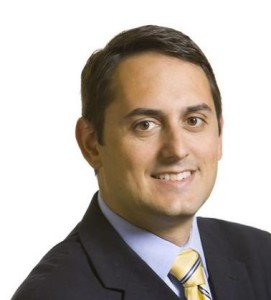 The Right Note is a weekly opinion column. The views and opinions expressed in the column are those of the author and do not necessarily reflect the views of ARLnow.com.
The Right Note is a weekly opinion column. The views and opinions expressed in the column are those of the author and do not necessarily reflect the views of ARLnow.com.
While the mid-week Metro shutdown was sudden and shocking to the area, it sent a clear message that the new General Manager Paul Wiedefeld is prepared to make unpopular decisions in the name of safety. And that’s a good thing.
During the shutdown Wednesday, safety inspections revealed at least three other locations where cables required repairs because they were fire hazards.
It was unquestionably a good decision to put safety first. But, the timing of the move also got the attention of both elected leaders and the public at large by sending a much-needed shockwave through the entire region.
Metro riders have long known about the system’s problems, but it didn’t really impact everyone directly. That is, until Tuesday evening’s announcement when suddenly every commuter had to think about Metro.
Wiedefeld has said Metro’s situation was worse than he originally thought, and that he is working to make systemic changes.
However, there was something very troubling in this Washington Post story. One WMATA official said, “The bottom line is he can’t rely on the people working for him.” The, albeit anonymous, source went on to say, “Nothing fundamental has changed to guarantee that the information he’s getting is accurate.”
So, in addition to a culture of safety, it sounds like Wiedefeld must institute a culture of accountability. He must institute a culture of trust. And, he must institute a culture of sound financial management.
In other words, there is a long way to go before WMATA is truly back on the right track. Hopefully the WMATA Board has given him all of the authority and latitude he needs to make all of the needed changes.
Not surprisingly, the discussions turned to the question of funding.
Regional leaders should evaluate the funding mechanisms in place and how best to move forward. However, it is clear that there are still more questions than answers about Metro’s future and funding alone will not solve them. Leaders must insist that a real plan to fundamentally transform how WMATA operates is in place and working before any funding changes are made.

